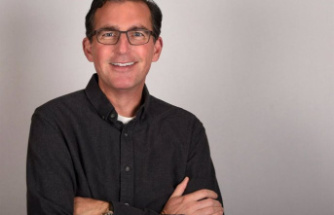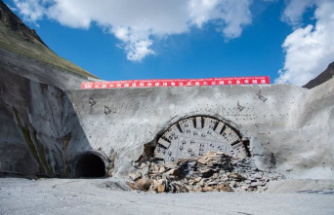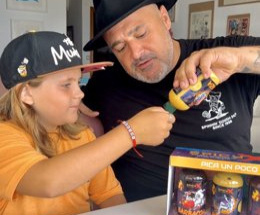Krones AG, a German packaging and bottling-machine manufacturer, planned to invest up to €20 million ($21.1 million) abroad over the next two years, with a strong focus on China, the U.S. and sub-Saharan Africa.
However, the increased amount of global uncertainty has led Krones to reconsider.
“Firms like us always struggle with making decisions for overseas investments,” said Klaus Gerlach, head of international operations at Krones. “In times like these, this is even more so the case,” he said.
A mixture of political and economic instability in core international markets present a challenge for Germany’s “Mittelstand” firms, or small and medium-size companies. Britain’s Brexit vote, tighter capital controls in China and expected changes to U.S. trade policy are forcing executives of these companies to revise their plans. Some are simply putting investment decisions on hold until further notice.
Mittelstand firms—mostly closely held family businesses—form the backbone of the German economy. Firms with annual revenue of €500 million ($527.9 million) or less invested €138.3 billion abroad in 2014, according to the most recent data available from Germany’s central bank. That’s nearly 13% of all foreign investment by German companies.
Large, well-known companies such as Volkswagen AG, Siemens AG or BMW AG only make up a small percentage of the country’s businesses, according to the Institut für Mittelstandsforschung, a German research institute. And many say they don’t see the need to suspend or alter their plans. More balance-sheet headroom and a presence in a wide range of countries won’t affect their bottom lines as harshly should an investment decision go wrong.
“Political and economic uncertainty hampers the continuation of substantial overseas investments, especially by small and medium-sized firms,” said Klaus Günter Deutsch, head of research at Bundesverband der Deutschen Industrie, the main German industry association.
Grimme Landmaschinenfabrik GmbH & Co. KG, a maker of harvesting machines based in Damme, also is cautious about future investments. “We have trouble dealing with the current situation,” said Sebastian Talg, managing director for sales and marketing at Grimme.
The company has a two-year time horizon on investments. Hence, Grimme’s management is weighing its options. Starting a small production facility in India is under discussion, with the company struggling to make a final decision, Mr. Talg said.
The company has subsidiaries in the U.S., the U.K., Russia and Turkey and is currently building a factory in China. Grimme’s 2016 revenue was around €400 million, he said. The new factory in China would cost €15 million, which is sizable for Grimme, Mr. Talg said.
Prospects for German Mittelstand firms in Russia, previously a lucrative market for them, soured when the European Union introduced economic sanctions following the crisis in Ukraine in mid-2014. Turkey, also a promising country for German exporters, has been more challenging since the 2016 coup attempt.
It is questionable whether existing overseas investments by German Mittelstand firms are sustainable, said Mr. Deutsch of the German industry group. Wide-ranging changes to the North American Free Trade Agreement, for example, or to the post-Brexit trade relationship between the U.K. and the EU could endanger some of those assets, he said.
Hugo Kern und Liebers GmbH & Co. KG, a manufacturer of springs and stamped parts based in Schramberg, with annual revenue of around €700 million intends to execute the investment decisions it has already made for 2017 and beyond. The company operates around 50 plants, 35 of them outside Germany.
Kern Liebers spends about 6% to 7% of its annual revenue on investments, with overseas spending making up the majority. In May, it will open a new plant in the Czech Republic, followed by one in Mexico in July. The firm already manufactures in Mexico, supplying U.S. auto makers there.
“The amount of risk has increased, but we made these investment decisions years ago,” said Hans-Jochem Steim, chairman of the supervisory board. “We might as well stick to them,” he said.
Write to Nina Trentmann at Nina.Trentmann@wsj.com
Appeared in the Mar. 14, 2017, print edition as 'Germany’s Economic Core Wrestles With Global Risk.'
Our editors found this article on this site using Google and regenerated it for our readers.













